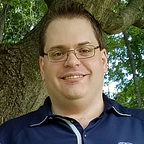Paranoia Will Destroy Ya, Part 1
A co-worker once told me the phrase that inspired the title of this article: Paranoia will destroy ya. As my advocacy skills and experience with mental health have increased in recent years, I am more than inclined to agree. But I find myself left to wonder if the experiences that inspired this catchphrase were as dramatic as what I have endured. There is a reason why I have been reluctant to write about it.
As an autistic person, paranoia can be incredibly intense to feel. What surprises me is the fact that I can now legitimately compare it to suicide. This is only the beginning. Now that I have a better understanding of autism, I find that I can go deeper into the roots of paranoia than I ever thought possible. Buckle your seat belts and get ready to explore schizotypal personality disorder, its connection to autism, and the hazardous pitfalls of paranoia.
At the same time I was diagnosed as autistic in August 2019, I was also diagnosed with schizotypal personality disorder. It has been explained to me by past mental health professionals as severe social anxiety that includes moderate to severe paranoia. My diagnosis came about by sharing prior experiences that were not isolated incidents. Bullying, discrimination, and even ghosting on instant messengers were some of the causes.
Until my discriminatory mental health care discharge back in February, I had no desire to know more about it. The worst paranoia that I have endured leaves me wanting to do nothing more than avoid it. At all costs. To best put it into perspective, here is a brilliant yet chilling comparison I tweeted in January. “Paranoia can drive you up a wall in a fraction of the time that an ideation can strip you of hope.” Perspective.
I have been an autistic suicide attempt survivor for 21 agonizing years. But I may have been experiencing varying levels of paranoia as far back as high school. The main reason I have no recollection of more than the last six years is because of how intense it is. It is no coincidence that two of the most severe occurrences of paranoia took place during this time. These two cases were so traumatizing that I was unable to forget them.
The first incident was in October 2017. I spent the previous year interacting with the local mental health volunteer community, looking for guidance. Guidance I lacked because I had no one supportive I could turn to. I sought a general practice counselor who encouraged me to explore the community to find a pathway to treatment. However, something very important was missing that would play a key role in what happened.
In September 2017, I attended mental health presentation training. Plans for the trip back had been botched by hackers when we first arrived, thus forcing my group to improvise. We had been instructed to arrange a Greyhound bus trip so we could get back home. I had extra cash on hand for emergencies. The two trainees who were with me had less money. In case of another emergency, I felt it was wisest if I paid for the bus tickets.
I thought nothing more of it. When we returned, I was reimbursed for the tickets. I also threw out the ticket receipt once I got home. There was no need to keep it, right? Wrong. I had unknowingly alienated a close friend of one of the trainees, who was an influential member of the community. The pair conspired to accuse me of lying about paying for the tickets. When I say accused, they did not ask for my story first.
I was ordered to pay back the money and apologize. No consideration was given to the fact that I was an avid volunteer. I had been a member of a mental health non-profit for a year. I was caught completely off-guard. The accusation was so disorienting and stressful that I recall actually doubting whether I paid for the bus tickets. This is despite having been fully aware of my actions when I bought them in the first place.
Thus, the paranoia began. Within minutes of receiving the email, I repeated my story to two of the management personnel. In the days that followed, they withheld updates about their determination. They knew me long enough to know I was a suicide attempt survivor and vulnerable to heightened stress. These were mental health volunteers. They should have known better than to take advantage of someone in that situation.
What was missing was knowing and fully understanding what life and communication for autistic people are like. Without it, we can go from one disaster to another. No one came to my defense. No one was mindful of mental health. I was treated like an outsider. For the first two weeks of October, I was plagued by paranoia. Each day I woke up, I felt like I was in a waking nightmare that kept getting worse with each passing day.
Yet, I longed for the social bonding that came with being a part of the community. I wanted so much to help people. At the end of the two weeks, I was a nervous wreck. Finally, in a planning committee meeting, the personnel candidly told me the other trainee had verified my story. Nothing more was to be said about it because the community member was their close friend. This lasted for a torturous two weeks.
If you think this was bad, imagine what an entire month feels like…
Continued here in Paranoia Almost Destroyed Me, Part 2.
